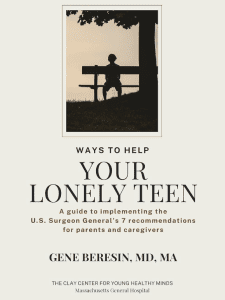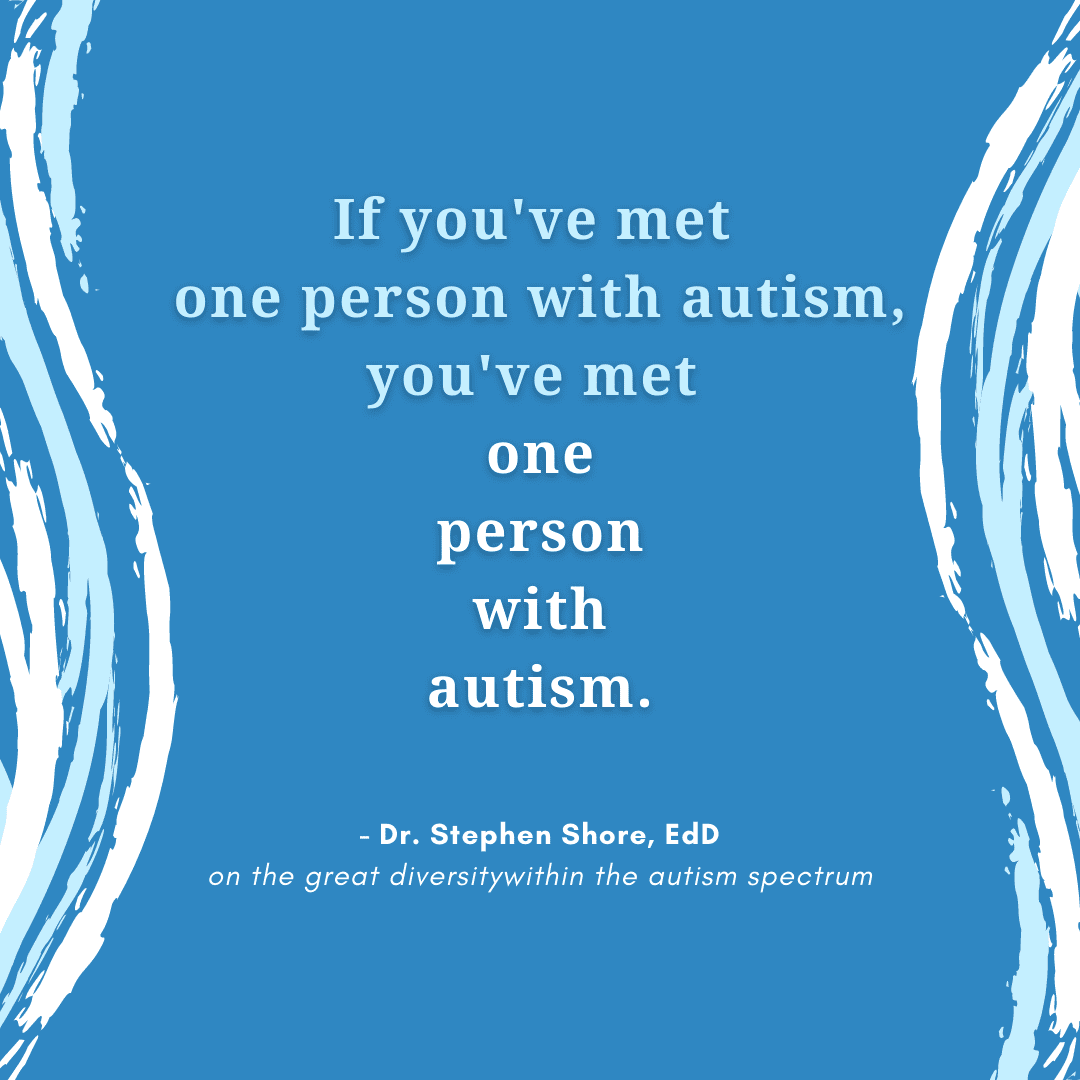AsperDad: Growing Up With a Parent on the Autism Spectrum (Maybe)

Posted in: You & Your Family
Topics: Autism Spectrum, Real Lives Real Stories
This blog post is part of a series entitled Real Lives, Real Stories.
The following person’s account of his/her personal experience has been published with her consent to support the mission of The Clay Center for Young Healthy Minds, and to let others in similar situations not feel so alone.
***
Listen to Hillary’s story on our podcast, “Shrinking It Down.”
If you search online for “parenting and autism,” most of the results you will find focus on parents who do not have autism raising children who do. If you perform the same search in a research database, then you will find the same pattern. However, if you search for scientific research articles that examine parents themselves who are on the autism spectrum, then you will need only one hand to count the number of studies you will find.

Order your copy of Dr. Beresin’s new guide.
Despite the currently lacking literature, these experiences are playing out every day across households and cultures, and among parents and children who may or may not be formally diagnosed with Autism Spectrum Disorder (ASD). How do I know this? I am a clinical psychologist with expertise in the assessment of ASD. But also, I am the non-autistic child of someone on the autism spectrum. Well… maybe. I will try to explain.
My dad had many traits consistent with the autism spectrum, which include social communication and interaction weaknesses, and restricted, repetitive behaviors, interests, and activities. For example, he followed highly structured daily and weekly routines. People on the autism spectrum often struggle with processing sensory information (like sounds, lights, smells, and textures), and I suspect that this was true for my dad. Right before I started graduate school, my dad and I went to see a KISS in concert. While he loved the idea of going to a rock concert, he disliked the lights and noise so much that we left within half an hour. It was never easy to tell what my dad was thinking or feeling, and I never once saw him cry. I am not sure if my dad ever told me, “I love you,” though the way he treated me and all the things he did for me never made me question his love.
My dad was a chemist and throughout his career, he did poorly with bosses, but he ultimately thrived in self-employment. My dad was single for a long time, but upon meeting “the one” – my mom – he became engaged, married, and a parent in just over one year. Finally, my dad was deeply passionate about speedboat racing – I spent many weekends growing up watching his races, and he could talk for hours on end about racing. Tragically, my dad died in a racing accident about seven years ago. I miss my dad, and all his quirks, every single day.
Based on my personal and professional experiences, there are some ways in which being on the autism spectrum can make parenting uniquely challenging:
- Navigating shifts in relationships with a partner/co-parent. Raising a child involves many new responsibilities, and old patterns, schedules, and routines may no longer be feasible. This kind of adjustment can be very hard for parents on the autism spectrum.
- Nuanced communication with a lot of new relations. Raising a child involves interacting and forming relationships with many new people, including the child’s teachers, doctors, friends (and their parents), and other parents in less structured situations, like at the park. Managing these interactions and feeling confident in them can be challenging for parents on the autism spectrum.
- Highly sensory experiences. Some aspects of child rearing are very demanding on the senses, including certain toys, foods, smells, and dirty diapers. What is “unpleasant” for someone who does not have autism can be “unbearable” or even physically painful for someone who does.
Despite these challenges, there are some important ways in which being on the autism spectrum can be an asset in parenting:
- Structure, routine, and predictability. Children often thrive when they have these things, and autistic parents are often well-equipped to provide them.
- Intense, passionate interests. It is important for children to have models of adults pursuing their interests and passions. While I did not share all my dad’s interests, there are some activities, like fishing and skeet shooting, that we enjoyed together. In fact, these are some of the happiest memories I have with my dad. And, it is cool that they fall outside traditional gender expectations.
- Exposure to neurodiversity and acceptance of people who are different. Research suggests that some siblings of people with ASD benefit from these unique relationships, and more is needed to know if this is true for children of people with ASD too.
While he was alive, it never seemed important to my dad to see a mental health professional to figure out if he were on the autism spectrum. Or, if he did so, then he never shared that with me. As a clinician, I see how important an appropriate diagnosis can be for self-understanding. However, my dad was born in the 1930s, when children with disabilities were institutionalized, and this could have impacted his decision-making. Fortunately, as a field, our understanding of the autism spectrum has grown tremendously, but the lack of research on autistic parents’ experiences shows that we have a lot of growing still to do.
In many ways, I hesitated to share this story – since my dad is dead, I did not have any way of getting his input or consent. It is also possible that an objective mental health professional could have evaluated him and determined that he was not on the autism spectrum. My dad had many strengths, and if he were autistic, then his experience should not be considered typical or representative. But I share this story because autistic parents exist and we need to learn more about them.
Some parents on the autism spectrum have a partner/co-parent who is also on the autism spectrum, but others have partners/co-parents who are “neurotypical” or not on the autism spectrum. Some autistic parents are single parents. Some are raising children who are on the autism spectrum too, while others are raising children who are not. Sometimes, a child’s ASD diagnosis is the beginning of a process that leads a parent to be diagnosed with ASD, too. All of these stories need to be told. More than anything else, though, I hope stories like mine show just how much joy there can be in parenting – and being parented – on the autism spectrum.

 Share
Share Tweet
Tweet




